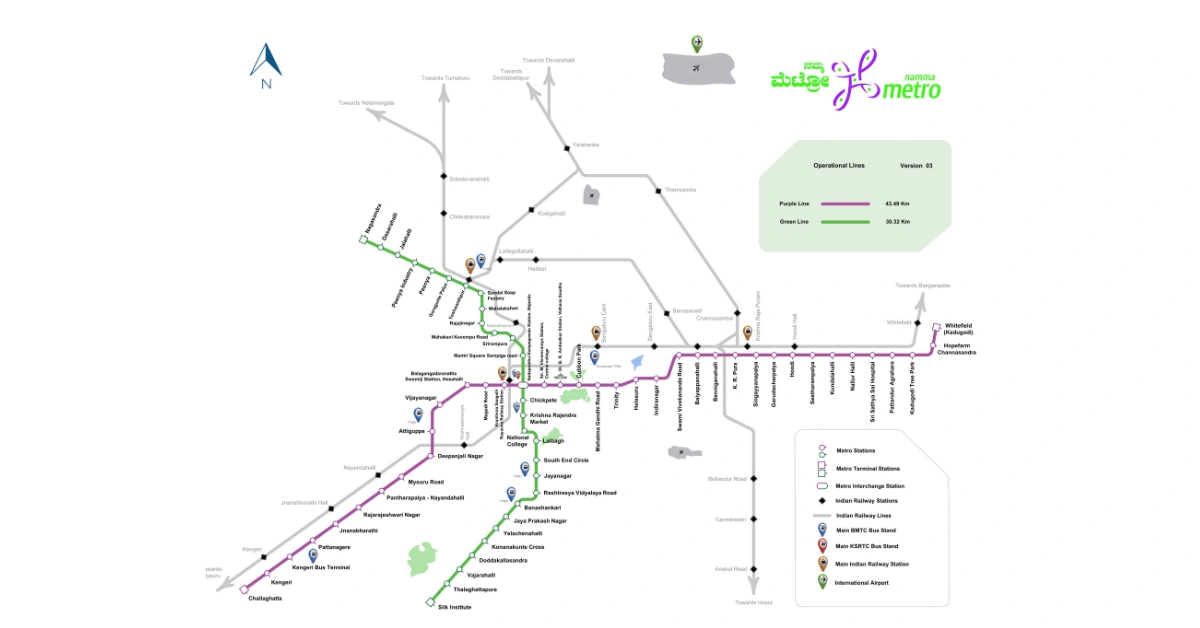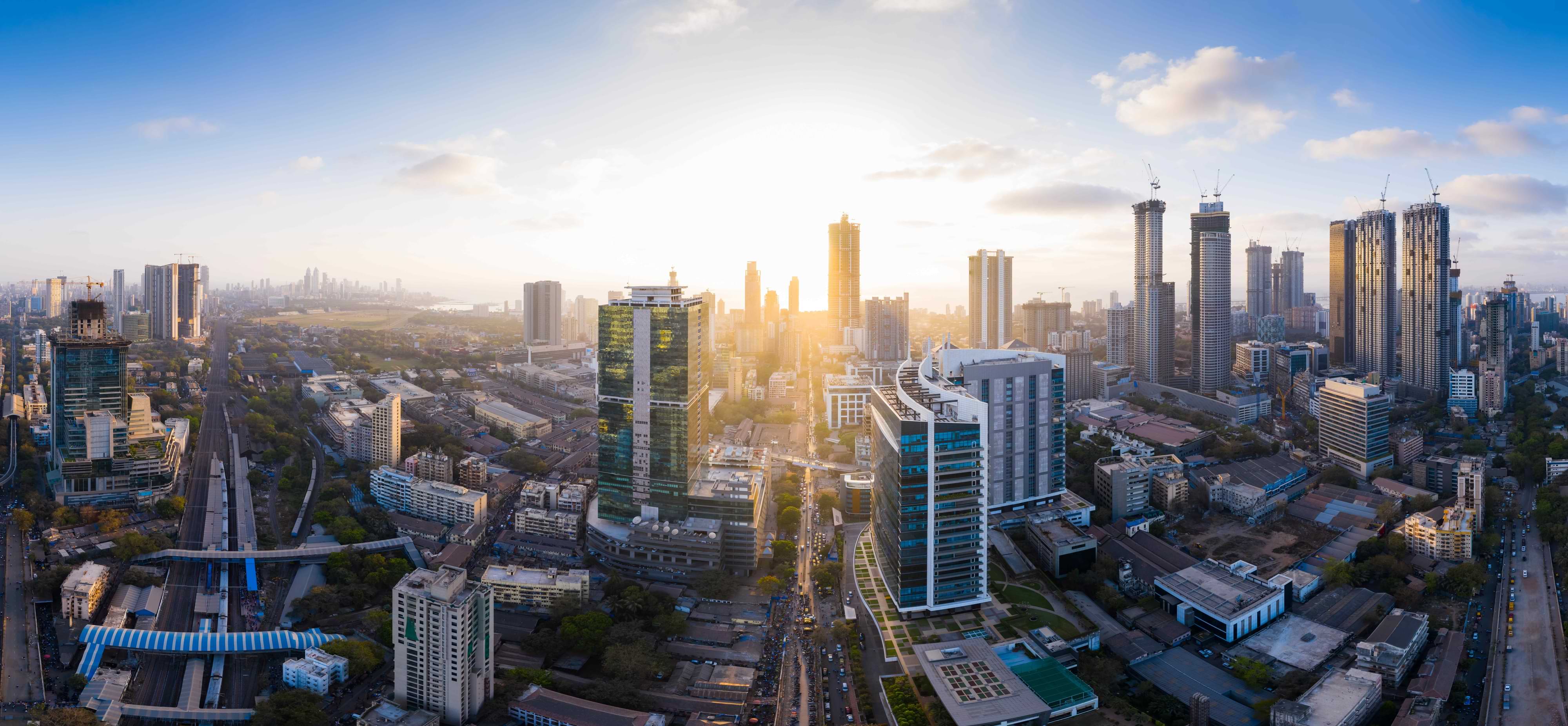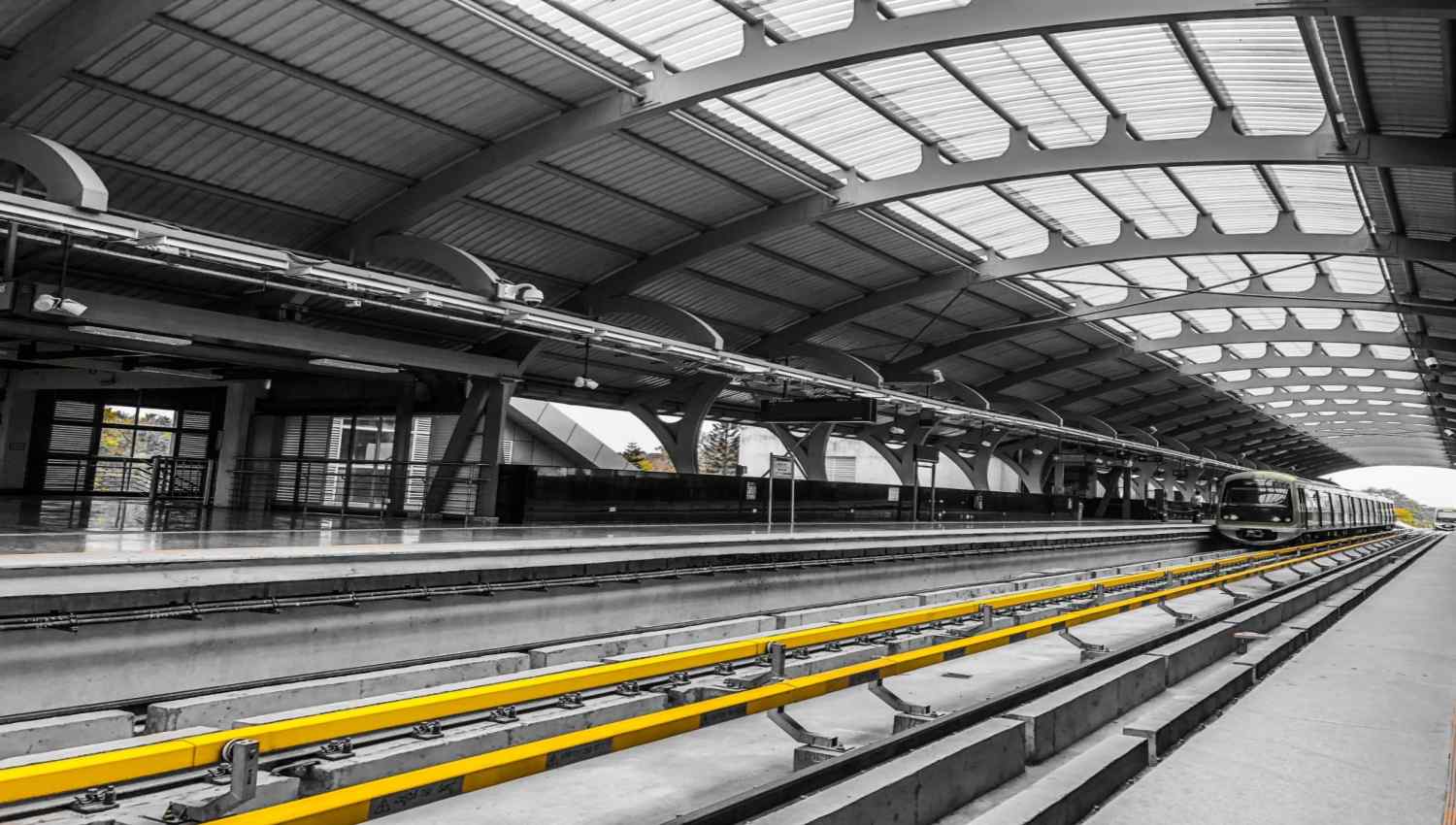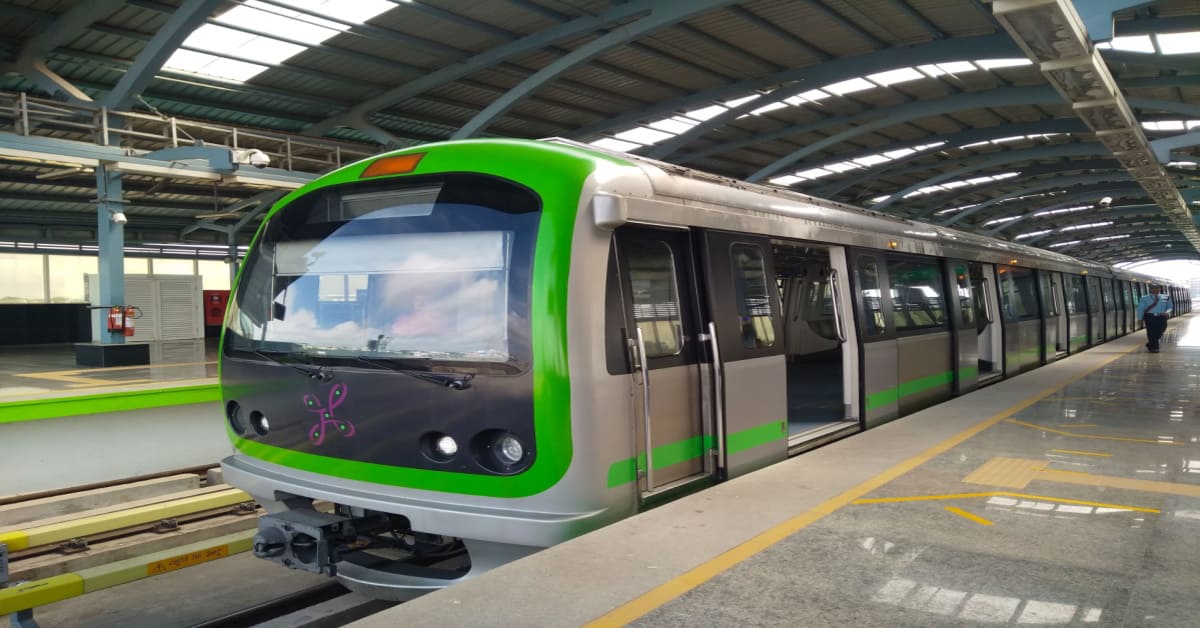- https://indianexpress.com/article/explained/why-maharashtra-is-planning-an-overhaul-of-its-rent-control-pagdi-system-10417720/
- https://www.usthadian.com/maharashtra-ends-the-pagdi-system-with-new-legislation/
Table of Contents
Quality Service Guarantee Or Painting Free

Get a rental agreement with doorstep delivery

Find the BEST deals and get unbelievable DISCOUNTS directly from builders!

5-Star rated painters, premium paints and services at the BEST PRICES!
Loved what you read? Share it with others!

What Is Pagdi System: Meaning, Rules, Rights & Redevelopment in 2026
Table of Contents
The Pagdi System is a traditional rental model in India where tenants pay a large one-time amount (Pagdi) and a very low monthly rent in return for lifelong tenancy and limited transfer rights. It is most common in Mumbai and is governed by the Maharashtra Rent Control Act, which strongly protects tenants. Originating in the British era, the system blends tenancy with ownership-like security. Recent redevelopment efforts and longer lease policies aim to modernise Pagdi properties amid rising rental demand.
What is the Pagdi System?

The Pagdi-Kiraydar System was introduced before India’s Independence and was a way to avoid paying taxes to the British. In this system, the tenants become part property owners, but still pay rent to the owners. If the tenant wants to sell their rights, they must give 30-50% of the sale amount to the property owner, such as Pagdi. As per Section 56 of the Rent Control Act, 1999, this is a legal payment called a premium or fine. The new law of the Pagdi system helps make such a deal more straightforward. Pagdi properties remain a unique form of tenancy in India and are still popular in Mumbai.
Understanding Tenant Rights Under the Pagdi System
- No formal lease agreement between property owners and tenants
- Tenants have long-term occupancy rights and often pay very little rent, for example, just ₹800 in South Mumbai today.
- In some instances, tenants are allowed to sublet the property.
Pagadi Meaning and Pagdi System Redevelopment

It is a unique and traditional rental model in India where tenants pay a Pagdi and minimal monthly rent, giving them long-term tenancy rights. In Mumbai, many buildings are old and unsafe for people and need redevelopment. Under the Maharashtra Rent Control Act, tenants are protected, but redevelopment requires the consent of 51% of the occupants.
Quality Service Guarantee Or Painting Free

Get a rental agreement with doorstep delivery

Find the BEST deals and get unbelievable DISCOUNTS directly from builders!

5-Star rated painters, premium paints and services at the BEST PRICES!
The Development Control and Promotion Regulation (DCPR) 2034 offers incentives to landlords for redeveloping properties. This ensures that tenants have new flats to live in, ranging from 300 to 1292 square feet, without paying anything extra. But if the size of the new flat exceeds the given range, the tenants must pay for the additional area. This is done to modernise the house while safeguarding the tenants' rights.
Key Features of the Pagadi System
The Pagadi system follows a tenant-friendly structure that offers long-term security and financial stability. It relies on partial ownership, where tenants gain strong control over the property without full legal ownership. Monthly rents remain nominal and protected under rent control laws. The tenancy rights also pass to legal heirs and can be transferred through a Pagdi amount, which keeps the system relevant even today.
- Lifetime Tenancy Rights: Under the Pagdi system, tenants can stay as long as they want and even pass the property to their heirs.
- Low Monthly Rent: Under the Pagdi system, tenants pay a huge upfront amount and then very low rent, which has remained the same for decades. For example, even today in South Mumbai, some tenants pay the rent of ₹800 while others pay around ₹20,000 for the same property.
- Transfer Rights: Tenants can also transfer their rights to someone else by taking part in the new Pagdi amount.
- Limited Control of Landlords: Under the Pagdi system, the tenants have more control, and the landlord cannot evict the tenant easily or raise the rent as they want.
- Partial Ownership for Tenants: The Pagadi system gives tenants long-term control over the property without legal ownership. Tenants enjoy security similar to that of owners, while landlords have limited authority over evictions or changes.
- Nominal, Protected Rents: Tenants pay a high one-time Pagdi amount and continue with a very low monthly rent. Rent is regulated by law and often remains unchanged for decades, even in prime areas.
- Inheritable and Transferable Rights: Tenancy rights pass smoothly to legal heirs. Tenants can also transfer their rights to another person by accepting a new Pagdi amount, subject to applicable laws
Legal Status and Governing Laws of the Pagadi System
The Pagadi System has deep roots in Mumbai’s rental housing market. It works on long term tenancy rights supported by state law. Even today, this system continues under a clear legal framework that protects tenants while defining landlord rights, especially during redevelopment.
Is the Pagdi System Legal Today?
Yes, the Pagdi System is legal in India under the Maharashtra Rent Control Act, 1999. The Act recognises old tenancy agreements in which tenants paid a lump-sum Pagdi and continue to pay a low monthly rent. These protections mainly apply to tenancies created before the Act came into force.
Key Provisions of the Maharashtra Rent Control Act, 1999
- The Act protects Pagdi tenants from eviction without valid legal grounds.
- Tenants have long-term occupancy rights as long as rent payments remain regular.
- Landlords cannot increase rents at will and must follow controlled rent rules.
- Tenancy rights can be transferred with the landlord's consent and legal approval.
- Redevelopment usually requires the consent of at least 51% of the occupants.
- Eligible tenants must receive alternate accommodation during redevelopment.
Pagdi System Law and Taxation
Specific rules under the Maharashtra Rent Control Act govern the Pagdi rent system. It affects the rights, taxation and income of the Pagdi system law's tenants and landlords. Below are a few points on law & taxation to understand it a little better
Pagdi Law System
- Tenant Protection: Under the Maharashtra Rent Control Act Pagdi System, tenants cannot be evicted easily and enjoy lifetime tenancy benefits, which makes it difficult for the property owners to reclaim or redevelop.
- Landlord Restrictions: Under the Pagdi rent system, landlords cannot increase the rent at their choice and must obtain legal approval. This gives the owners very minimal returns from the property.
- Redevelopment Consent: Redeveloping the Pagdi property requires consent from most of the tenants living there. The builder must provide alternate accommodation to the tenants during the work.
Pagdi System Taxation
- Capital Gains of Landlords: When landlords receive money or property during the redevelopment, they must pay a capital gains tax on their share per the capital income tax law.
- Transfer Taxation: In a Pagdi system, if the tenant transfers the right to another, the received Pagdi amount may be taxable depending on the agreement and value received.
- TDS Applicable: If the Pagdi amount or the compensation exceeds ₹50 lakhs, then the buyer must deduct TDS (Tax Deducted at Source) before making the payment to tenants or landlords.
Pros And Cons of the Pagdi System
The Pagdi is a traditional rental system and is different from the typical renting process. If you are a tenant in Mumbai and have tenancy rights under the Pagdi system, then you, as a tenant, will have a partial ownership of the rental property. Below are a few pros and cons of the Pagdi system:
Pros of the Pagdi System
- Low Rents for the Tenants: Under the Pagdi system, tenants pay a low rent after paying the initial Pagdi amount, which makes living affordable for people who need long-term housing, especially in an expensive city like Mumbai.
- Mutual Benefit: Under the Pagdi system, tenants and owners have equal benefits. If the property owner decides to sell the building and its land to the real estate developer, the tenant will be given a substantial percentage of the sale amount to vacate the place. So, for example, if you paid around ₹8000 in the early 1960s and the property is sold for ₹40 lakh in 2025, then the tenants will get ₹10-20 lakh to move out.
- Transferable Rights: Tenants can transfer their occupancy rights to others, often earning a share of the new Pagdi amount, as mentioned in the Pagdi system agreement format.
Cons of the Pagdi System
- Limited Landlord Income: The landlord received very low rent for almost a decade. This can be financially challenging for landlords, especially without regular Pagdi system agreement format updates.
- Redevelopment Challenges: Under the Pagdi system, tenants also have rights on the property, so getting consent from most tenants delays redevelopment, making it hard to renovate the old and unsafe building.
- Legal Grey Areas: The Pagdi system often does not have clear documentation, and informal deals can lead to legal disputes and complications between the landlord and the tenants.
Redevelopment of Pagdi Properties
Redevelopment of Pagdi properties follows a defined legal process under the laws of Maharashtra. The aim is to upgrade unsafe buildings while protecting tenant rights. A defined legal process outlines the roles of landlords, tenants, and developers at every stage. Tenant consent remains a key requirement, which helps ensure transparency and fairness. Understanding the steps and entitlements allows tenants and landlords avoid disputes and delays.
How Does the Redevelopment Process Work?
- The landlord or developer conducts a structural audit to confirm the need for redevelopment.
- A proposal is shared with all Pagdi tenants explaining project details and benefits.
- Consent is collected from at least 51 percent of eligible occupants.
- A registered developer is appointed through a legal agreement.
- Tenants receive written assurance for alternate accommodation and future allotment.
- Vacating the building is carried out after obtaining the required legal approvals.
- Construction begins after approvals from local authorities.
- Tenants receive possession of new homes after project completion.
Tenant Entitlements in Redevelopment
- Permanent Alternate Accommodation: Right to receive a new residential unit in the redeveloped building
- Minimum Carpet Area: Guaranteed minimum area as per prevailing DCPR norms and agreement terms
- Temporary Housing or Rent Compensation: Monthly rent support or transit accommodation during construction
- Ownership Rights: Entitlement to ownership in the new property, if mentioned in the redevelopment agreement
- Tenant Protection: Safeguard against eviction without proper rehabilitation
- Possession Timeline: Defined handover period clearly stated in the consent and redevelopment agreement
Pagdi Properties: Can Landlords Kick Out Tenants on a Whim?
In the Pagdi system, landlords cannot evict tenants arbitrarily. They can only do so for specific reasons allowed under the law. The following are some of the reasons for which a landlord can evict a tenant in the Pagdi system:
- Non-payment of rent by the tenant: If the tenant fails to pay the rent on time, the landlord can initiate eviction proceedings against them.
- Subletting of the property: If the tenant sublets the property without the landlord's permission, the landlord can evict them.
- Illegal activities: If the tenant engages in illegal activities on the property, the landlord can evict them.
It is important to note that the landlord must follow the due process of law when evicting a tenant. They must serve a notice to the tenant and follow the procedures laid down in the Maharashtra Rent Control Act, 1999. At NoBroker, we understand that the eviction process can be complicated and stressful for both landlords and tenants. That's why we offer a range of real estate services, including property management and legal assistance, to help landlords and tenants navigate the process smoothly.
Passing on the Pagdi Property: Who Gets to Call the Shots?
In the Pagdi system, the ownership of the property and the tenancy rights are intertwined. The following are some of the scenarios in which the transfer of ownership and tenancy rights can take place:
- Inheritance: If the original tenant passes away, their heirs can inherit the property and the tenancy rights.
- Sale: The tenant can sell their tenancy rights to another person. However, the landlord has the right of first refusal, which means they have the option to buy the property before anyone else.
- Redevelopment: If redevelopment occurs, the landlord may offer the tenant alternative accommodation in the new building. The tenant can choose to accept or decline the offer. If they fall, the landlord must pay them compensation.
It is important to note that the transfer of ownership and tenancy rights in the Pagdi system can be complicated and requires legal expertise. At NoBroker, we offer legal assistance to help landlords and tenants navigate the process smoothly.
Inclusion Of Pagdi System Under RERA
The Real Estate Regulation and Development Act (RERA), introduced in 2016, aims to bring transparency and accountability to the real estate sector. RERA requires developers to register projects, follow approved plans, disclose timelines, and meet delivery commitments. Penalties apply if developers fail to comply. In 2025, RERA added a one-click access feature that allows buyers to easily view detailed project and builder information. This move improves trust and helps buyers make informed decisions.
The Pagdi system in Mumbai is a unique rental model in which tenants initially pay a huge Pagdi and then a very low monthly rent. Many buildings are old, and the redevelopment generally takes a long time and can be tricky. [1]
Latest News on Pagdi System in Mumbai

Recent developments have highlighted uncertainty around the Pagdi system in Mumbai. The Maharashtra government missed an important deadline to submit its stance in a Supreme Court case challenging the Maharashtra Rent Control Act. This has raised concerns among the Pagdi tenants about the possibility of eviction and the loss of their rights.The Pagdi system lawyers in Mumbai, representing the tenants, emphasise that the government should actively defend the legislation and protect the rights of 30 lakh people affected by the Rent Control Act. [2]
Pagdi System vs. Lease Agreement: Key Differences
The Pagdi system and the lease agreement are rental agreements but differ in legal rights, duration and ownership. Below are the major comparisons between the two:
| Features | Pagdi System | Lease Agreement |
| Ownership Rights | Semi-ownership feel; long-term occupancy | No ownership; limited to the lease period |
| Rent Control | Low, regulated rent | Market-based rent |
| Transferability | Often transferable with landlord consent | Usually non-transferable |
| Eviction Rights | Difficult to evict due to the rent law | The landlord can evict once the lease ends |
| Payment Structure | One-time lump sum (Pagdi) | Regular monthly rent only |
Know Your Rights and Get the Right Legal Counsel with NoBroker
When dealing with legal matters and paperwork under the Maharashtra Rent Control Act, even small mistakes can lead to significant losses. With over 30 lakh people in Mumbai living under the Pagdi system, property rights and loan approvals can become complex. NoBroker simplifies this process by offering expert guidance on property transfers and home loans. A dedicated Loan Manager assists you at every step, ensuring smooth documentation and fast loan disbursement. Check your eligibility today for a hassle-free experience.
Frequently Asked Questions
Ans. The Pagdi system is a pre-independence rental law that gives the tenant certain ownership rights over the rented property, including the right to sub-let the property or even sells it while giving a share to the original owner.
Ans. While there are efforts to modernize or abolish the archaic Pagdi system documentation altogether, the system was made legal as per the Maharashtra Rent Control Act of 1999 and came into effect in the year 2000 and follows the new law for pagdi system in Mumbai.
Ans. If the original owners choose to sell the building with its land to a new real estate developer, you as a tenant will be given a substantial percentage of the current sale amount to vacate the premises.
Ans. The amount received from the sale of the Pagdi property is a capital asset and you can save tax on such long-term capital gains by reinvesting in a new home.
Ans. Getting a home loan on a property under the Pagdi System can be difficult, as many ownership issues remain prevalent with old properties. If you want the property rights transferred to your name, you need to establish your ownership rights for the banks to approve your loan application.
Recommended Reading

Cost of Living in Bangalore 2026: Detailed Breakdown of Housing, Food and Expenses
January 28, 2025
114022+ views

Cost of Living in Mumbai: Rent, Utilities, Transport & More in 2026
May 5, 2025
112260+ views

Cost of Living in Hyderabad: Accomodation, Transport and Utilities in 2026
January 31, 2025
81839+ views

What Is Pagdi System: Meaning, Rules, Rights & Redevelopment in 2026
May 21, 2025
66261+ views

12 Best Cities to Live in India: Top Locations for Quality Living and Real Estate Investment in 2026
June 16, 2025
60544+ views
Loved what you read? Share it with others!
Most Viewed Articles

Bangalore Metro: Map Route, Timings, Lines, Stations List and Updated News 2026
May 4, 2025
486398+ views

Top 12 Richest Cities in India: Population, Area, GDP and Ranking in 2026
March 13, 2025
353436+ views

Purple Line Metro Bangalore: Routes, Maps and Timings and Fares
May 1, 2025
269799+ views

Yellow Line Metro Bangalore: Route, Map Timings, Stations and Fares in 2026
May 2, 2025
256843+ views

The Green Line Metro Bangalore: Routes, Maps, fares and Nearby Residential Areas
April 10, 2025
224679+ views
Recent blogs in
Nallurhalli Metro Station: Map, Parking, Station Lists and Nearby Residential Areas to Live in 2026
February 19, 2026 by Krishnanunni H M
Welcome Metro Station Delhi: Parking, Stations, Timings and Nearby Localities to Live in 2026
February 19, 2026 by Krishnanunni H M
February 19, 2026 by Kruthi









 Full RM + FRM support
Full RM + FRM support
Join the conversation!